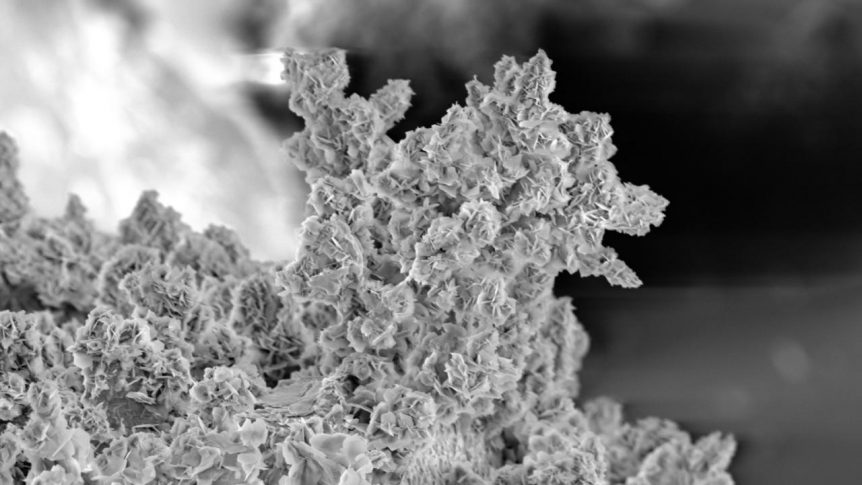One thing stalling battery development, dendrites, may have met their match if University of California at Davis researchers have their way. Jiandi Wan’s research group allowed ions to flow through a microfluidic channel near a battery’s cathode to prevent dendrite growth. According the group’s paper, this, “…can potentially expand the safety and lifespans of these next-generation rechargeable batteries.” Their research may lead to safe lithium metal batteries, promising higher power and energy densities, but also struggling with safety issues. Lithium metal batteries might potentially produce twice the energy of lithium-ion batteries, but have greater risks because of the growth of tree-like dendrites on the cathode. An article in PV Buzz explains, “When they charge, some ions are reduced to lithium metal at the cathode surface and form irregular, tree-like microstructures known as dendrites, which can eventually cause a short circuit or even an explosion.” Associate professor Jiandi Wan’s paper in Science Advances explains the problem and the fix. His Department …
Tag Archive
Below you'll find a list of all posts that have been tagged as “Science Advances”

